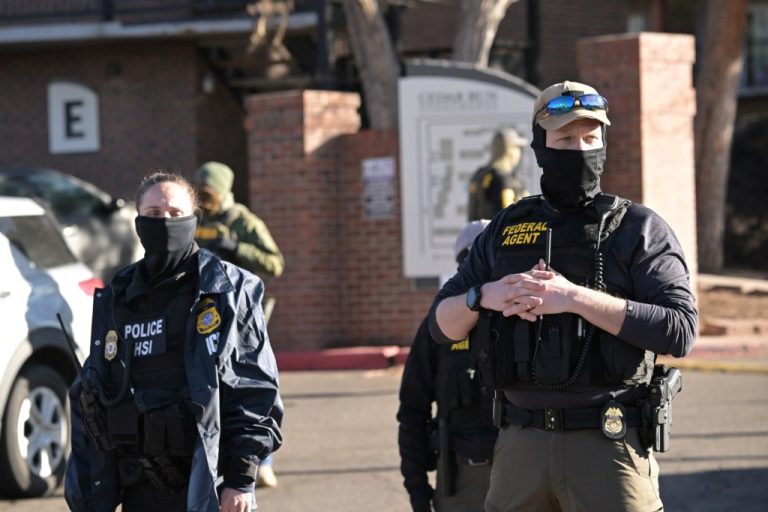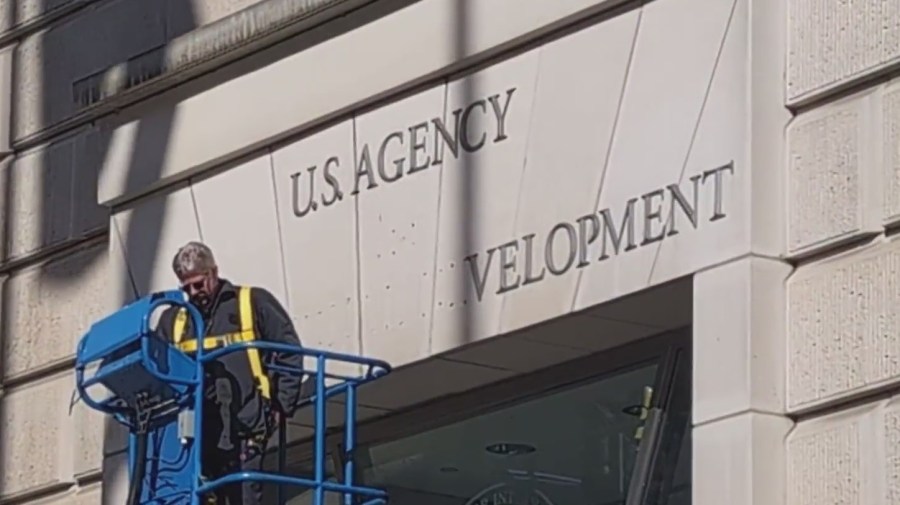

The San Diego Police Department is now only publicly identifying people who’ve been arrested or cited going back 30 days, a significant change to its longstanding approach to public records requests.
While other enforcement information may still be shared for older time periods, such as the number of arrests made for a particular crime, names can be off limits.
Leaders said the shift was due to concern that releasing months’ or years’ worth of detailed data would inadvertently publicize individual rap sheets, which California agencies are barred from doing.
State law says someone’s “summary criminal history is confidential” and local governments “shall not disclose its contents.”
While that statute can be read a variety of ways, its interpretation was complicated last year after a state appellate ruling, Kinney v. Superior Court, allowed a California county to withhold the names of people who’d been arrested nearly a year before a formal records request.
San Diego officials have debated how best to proceed and the allowed window of time has been a moving target in recent weeks.
“We’re making decisions based on the best information we have,” Capt. Jeff Jordon, who oversees public records for the department, said in a phone interview. “I’m not going to run afoul of Kinney and the legal risk.”
Releasing names from years prior, which the department did until recently, opened police up to privacy lawsuits, Jordon said. At the same time, he acknowledged that any new policy may still result in litigation, and the captain said he welcomed clarification from judges or lawmakers about what he was required to share.
David Loy, legal director of the First Amendment Coalition, said the old approach could have gotten San Diego sued.
“It’s hard to say the city’s legally wrong,” he said.
The bigger issue may be that case law hasn’t defined what should be public. Loy said establishing a statewide standard would require balancing the needs of, say, investigative journalists with residents who don’t want their past arrests to keep them from jobs or housing.
The 30-day window was also based on advice from the City Attorney’s Office, police officials said. Andrew Sharp, a spokesperson for City Attorney Mara Elliott, declined to comment on those discussions.
The San Diego Union-Tribune learned about the shift after receiving differing responses to several records requests, especially those concerning the city’s new camping ban.
In late August, about a month after enforcement began, the news organization asked for the names, dates and locations of those who had so far been cited or handcuffed.
Just over a week later, police handed over data about everyone affected. That information was not only crucial to seeing who had been ticketed, but it allowed the public to check where enforcement was taking place, as city leaders have declined to share exactly how officers are being deployed.
Some of the data was included in an article noting that all of the initial citations had been given in or near Balboa Park. While that story did not identify anybody, the records allowed reporters to begin tracking how individuals were prosecuted.
A few months later, on Nov. 10, The San Diego Union-Tribune submitted an almost identical request asking for records about more recent enforcement.
This time, police were less forthcoming.
A records custodian wrote to say they would share who’d been punished — but only during the past two weeks. That omitted the names of anyone who’d been cited or arrested during September and most of October.
Police did provide links to previously published data going back to 2018 in a separate records request, allowing a review of encampment enforcement through part, but not all, of September.
The department listed a number of justifications, including the Kinney decision, which found that Kern County did not have to identify a small group of people who’d allegedly driven under the influence because the information was months old.
The court did caution that its conclusion “should be limited as much as possible to the facts of this case” and suggested California law was vague about what should be disclosed.
Requests for arrest records “will often pit two very important rights against each other — the public’s right to know and the individual’s right to privacy,” the ruling said. “The Legislature may wish to consider amending” state statute “or otherwise provide clear guidance on when and how law enforcement agencies must make … information available.”
On Tuesday, Jordon said he would make an exception to the two-week limit and provide the missing names. Otherwise, the department would release only two weeks’ worth of identifying information.
That approach again changed by Thursday. In a text message, Jordon said they would now give names going back 30 days after reviewing how other agencies were interpreting the court decision.
It “will most likely remain this way until our Legislature amends the law or a court provides clarity through future litigation,” he wrote.
The longer time frame does significantly reduce the risk that a dataset might accidentally omit enforcement. Police tickets are still written by hand, and it can take time to enter citations into the department’s system, meaning electronic records are sometimes inadvertently incomplete. One way to ensure that everything is captured is by repeatedly filing requests for the same periods of time.
Furthermore, members of the public can still ask for records monthly to build their own detailed databases of arrests and citations.








